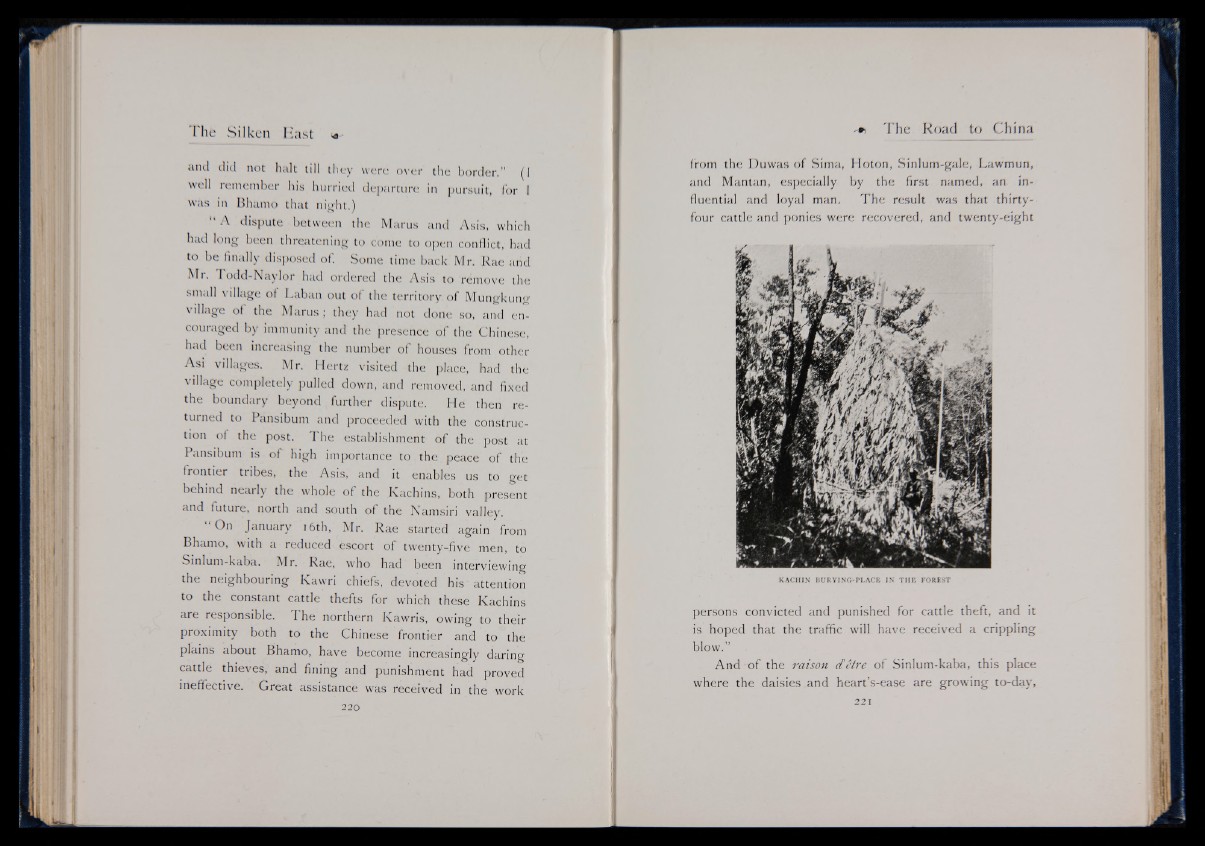
and did not halt till they were over the border.” (1
well remember his hurried departure in pursuit, for I
was in Bhamo that night.)
" A dispute between the Marus and Asis, which
had long been threatening to come to open conflict, had
to be finally disposed of. Some time back Mr. Rae and
Mr. Todd-Naylor had ordered the Asis to remove the
small village of Laban out of the territory of Mungkung
village of the Marus ; they had not done so, and encouraged
by immunity and the presence of the Chinese,
had been increasing the number of houses from other
Asi villages. Mr. Hertz visited the place, had the
village completely pulled down, and removed, and fixed
the boundary beyond further dispute. He then returned
to Pansibum and proceeded with the construction
of the post. The establishment of the post at
Pansibum is of high importance to the peace of the
frontier tribes, the Asis, and it enables us to get
behind nearly the whole of the Kachins, both present
and future, north and south of the Namsiri valley.
“ On January 16th, Mr. Rae started again from
Bhamo, with a reduced escort of twenty-five men, to
Sinlum-kaba. Mr. Rae, who had been interviewing
the neighbouring Kawri chiefs, devoted his attention
to the constant cattle thefts for which these Kachins
are responsible. The northern Kawris, owing to their
proximity both to the Chinese frontier and to the
plains about Bhamo, have become increasingly daring
cattle thieves, and fining and punishment had proved
ineffective. Great assistance was received in the work
220
from the Duwas of Sima, Hoton, Sinlum-gale, Lawmun,
and Mantan, especially by the first named, an influential
and loyal man. The result was that thirty-
four cattle and ponies were recovered, and twenty-eight
K A CH IN BU R Y IN G -P L A C E IN' TH E FOREST
persons convicted and punished for cattle theft, and it
is hoped that the traffic will have received a crippling
blow.”
And of the raison d Hre of Sinlum-kaba, this place
where the daisies and heart’s-ease are growing to-day,
221